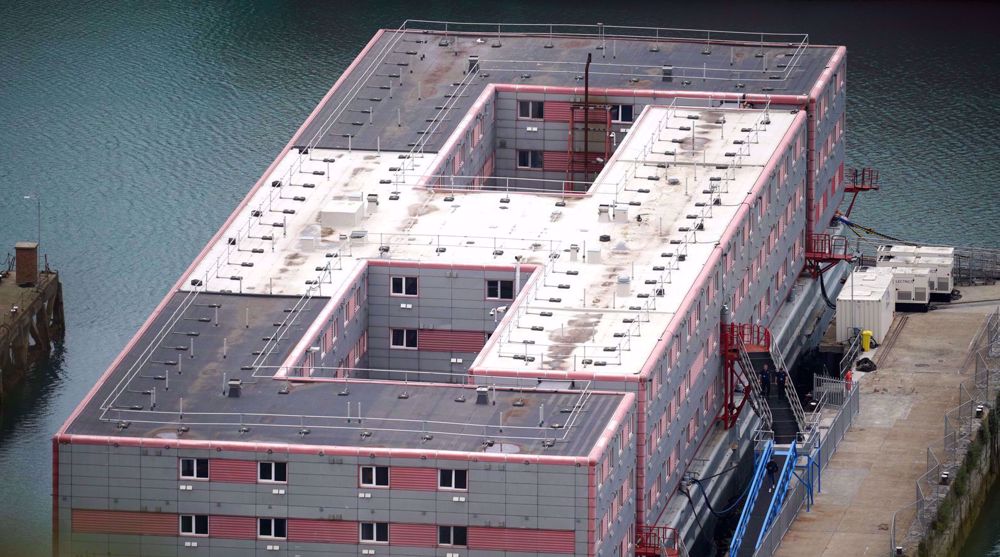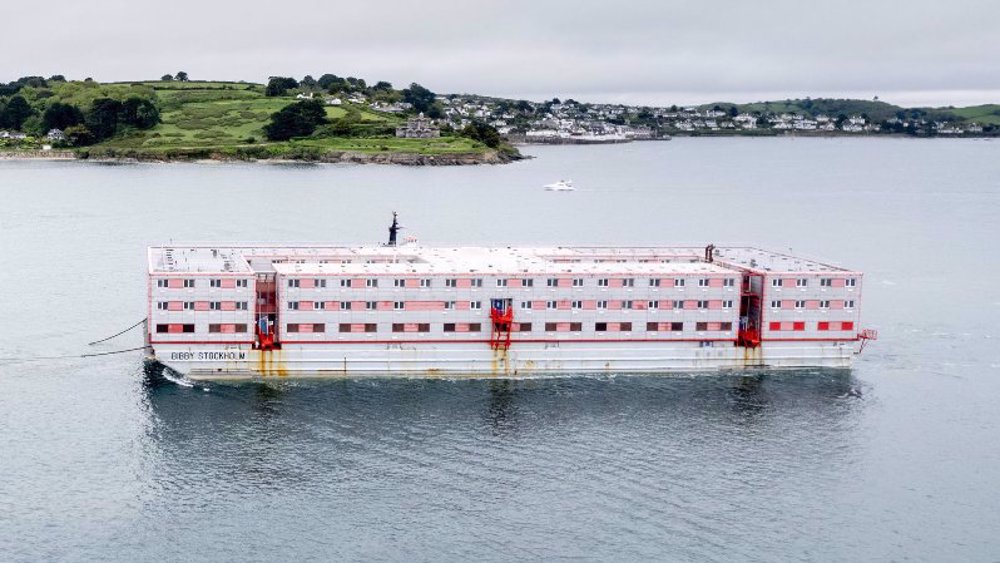Bibby Stockholm barge: Refugee says UK treating migrants as 'less than animals'
The British government is "endangering" refugees and treating them as "less than animals," an asylum seeker taken off the Bibby Stockholm accommodation barge has emphasized.
The man, who was evacuated from Bibby Stockholm to a hotel by the Home Office on Friday after the discovery of Legionella bacteria in the vessel's water system, further expressed his anger at the government’s failure to ensure the safety of the barge prior to putting people on it.
"We bathe with it, we drink it. We were told at 6 pm on Friday," said the asylum seeker, who boarded the vessel on Wednesday, as cited in a report by Sky News, which noted that he spoke on condition of anonymity.
"I feel so bad. Especially because on the news they said they took water samples but instead of waiting for (a) result before putting people on there, they just put us on there: it's like we don't matter," he added.
"They should have been so sure it is habitable," he further stressed. "Why not wait for the result and be sure everything is okay? We are being treated like less than animals. They are endangering us."
The man had arrived in the UK in December and was one of 39 men who were put on the barge last week.
"I'm not happy about it," he insisted, noting: "I'm deeply sad. Because if they had cared about us enough, if they had known since Monday, they shouldn't have put us there: why did they still put us there?"
He further said he is worried about falling ill, especially as "I'm all alone. I don't have family" in the UK.
Legionella bacteria can cause a serious type of lung infection known as Legionnaires' disease.
According to the Home Office, none of the refugees on the barge had shown any symptoms of the disease.
The man described living on the “small” barge “like being on a prison, because the security is too much. There's no freedom. For me I have a fear of water. I can't swim. Me being on water, my heart palpitates. I can't sleep."
Dorset Council, contractors on the barge and the Home Office have traded blame over the late response to the discovery.
The council claimed that a Home Office staff member was informed about the bacteria on Tuesday.
A government source, however, dismissed the claim, saying there was no record of this conversation, and that the Home Office only received a written notification about the traces of Legionella bacteria on Wednesday evening.
Dorset Council said Home Office contractors were notified about the results last Monday, four days before people were moved off the vessel.
Every year, thousands of asylum-seekers travel to Britain on small dinghies, risking their lives to cross the English Channel. Now, more than 50,000 of these desperate people are living in hotels waiting for the result of their asylum claims.
As a way to deter refugees from reaching Britain through unauthorized means, London is moving asylum seekers onto abandoned military sites and barges like the gray, three-story Bibby Stockholm, with the capacity to fit 500 people, in Portland.
The UK plan was criticized amid concerns about asylum seekers' welfare. The Fire Brigades Union (FBU) also called the vessel a potential "death trap".

Palestine Action wins again

Misuse of UK terrorism laws targets pro-Palestine movements

Iran’s foreign ministry lays bare rampant US, UK human rights violations in annual reports
Joseph Aoun voted Lebanon’s president, ending 2-year deadlock
Iran protests to France over French city’s insulting poster
MP Corbyn challenges UK govt. over complicity in Israel's Gaza genocide
Iran performs first fetal brain surgery in West Asia
Lebanon’s MPs trying to pick new president after 12 failed attempts
UNICEF: Israel killed at least 74 children in Gaza in first week of 2025
VIDEO | Nippon Steel takeover bid
IRGC unveils Rezvan suicide drone on final day of massive drill








 This makes it easy to access the Press TV website
This makes it easy to access the Press TV website